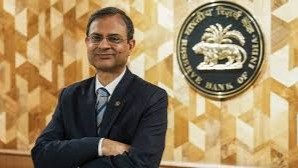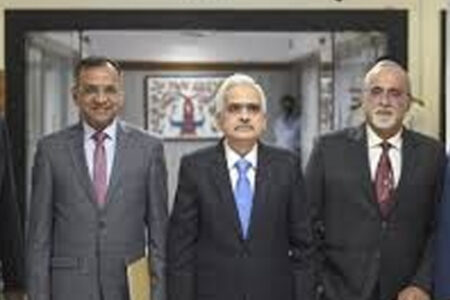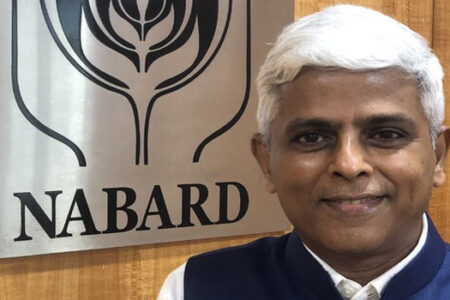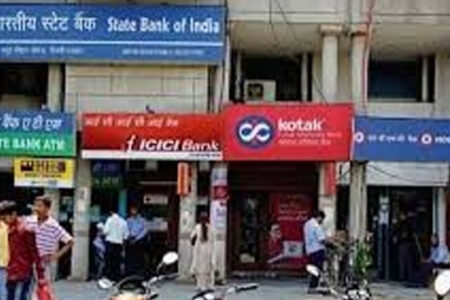Everybody and her aunt are speculating about yet another rate cut by the Reserve Bank of India (RBI) this week, when its rate setting body – the Monetary Policy Committee (MPC) – meets.
In the past two MPC meetings, the RBI had cut the policy repo rate by a quarter percentage point each, paring it from 6.5 per cent to 6 per cent. In April, it also changed the stance to “accommodative”, officially kicking off the easy money cycle.
Retail inflation of 3.16 per cent in April, the lowest in 60 months, slow credit growth, and a stable rupee, among other factors, point to the possibility of yet another rate cut.
Typically, a pre-policy column discusses inflation, growth, and everything else related to the policy. This time round, let’s focus on something else.
After presenting his first monetary policy in February, RBI Governor Sanjay Malhotra faced this question from the media: “You mentioned the flexible inflation targeting and, at the same time, your original target is 4 per cent for the medium term. Just wondering, will you be comfortable if inflation remains within the 2-6 per cent range or will you want to see inflation durably settling around 4 per cent?”
Malhotra, a 1990 batch IAS officer, replied with a straight face: “When you go to an exam where the maximum marks are 100 and passing marks 40, what do you aspire for? Do you aspire to pass or do you aspire to do extremely well? Well, some may like to just pass. At the RBI, we like to be on top of everything.”
In April, when asked if more rate cuts were in the offing, Malhotra said, “I am Sanjay, not Sanjaya of the Mahabharata, who can predict future rate actions.”
The reference to Sanjaya (which means “victory”), from the epic Mahabharata, drove the message home. Sanjaya was the advisor to and charioteer of Dhritarashtra, ruler of the Kuru kingdom and father of the Kauravas. He was a disciple of sage Vyasa, who had granted him the gift of divya drishti, a divine vision that enabled him to see distant happenings within his mind. He narrated the events of the Kurukshetra war to Dhritarashtra, who was born blind.
Besides clarity, Malhotra is bringing humour back to Mint Road.
Let’s revisit some humorous remarks of central bankers from India and overseas.
Janet Yellen, the first woman US Federal Reserve head (2014-19), once said, “I’m not going to tell you when we’re going to raise rates… I never said when we’d raise rates. I only said ‘probably.'”
Many comments of YV Reddy, RBI governor from 2003 to 2008, are popular, but this one takes the cake. “I am very independent. The RBI has full autonomy, I have taken the permission of my finance minister to tell you that,” he said, reflecting on the RBI’s freedom. Of course, he was quick to add: “The RBI is independent but within the limits set by the government.”
The RBI employees remember Reddy for implementing the best wage revision pact in 2005 (it was due in 2002). Such revisions happen every five years. That pact offered a 22 per cent raise. After taking into account different allowances, it was an increase of almost 40 per cent. The next day, Reddy’s right hand must surely have ached – with virtually every employee at the central office shaking his hand, holding it for minutes on end. His email was flooded with “Thank you” messages.
An overwhelmed Reddy asked someone, “Why so much excitement? Did I sign something I should not have?”
Tongue-in-cheek, Reddy had also said: “As a central banker, I am paid to worry.” And: “Before policy announcements, my wife would say she knew what I was going to do, but she just didn’t know what I was going to say!”
When Reddy was asked whether he was an inflation hawk or dove, his reply was: “I’m an owl – wise enough to see through the darkness.”
The owl seems to be the favourite bird of RBI governors. In response to being labelled differently as a hawk, dove, or Santa Claus, Raghuram Rajan (2013-16) had said: “We are neither hawks nor doves. We are actually owls.”
His successor, Urjit Patel (2016-18), too had used the owl reference. “We are owls. The owl is traditionally a symbol of wisdom. We are vigilant when others are resting,” he had said.
Rajan, known for “dosa economics”, was witty to the core. He was not shy of saying: “My name is Raghuram Rajan and I do what I do.” On media speculation about his tenure, he said: “It would be cruel of me to spoil the fun that the press is having on my extension.”
When it comes to wit, D Subbarao (2008-13) is second to none. At a conference in July 2012, he said he used to pay Rs 25 for a haircut 20 years ago, which went up to Rs 50 even as his hair thinned. “Now, when I have virtually no hair left, I pay Rs 150 for a haircut,” he said. “I struggle to determine how much of that is inflation, how much is the premium I am paying to the barber for the privilege of cutting the governor’s non-existent hair.”
In yet another barber joke, once in Delhi, he had said that while cutting his hair, his barber kept on discussing inflation. When Subbarao asked the barber why he was interested in inflation, he answered that every time he uttered the word inflation, it made Subbarao’s hair stand on end, making his job easier.
In 2012, when Pratip Chaudhuri, then chairman of the State Bank of India, and KC Chakrabarty, then RBI deputy governor, were having a not-so-pleasant public exchange of views on banks’ cash reserve requirement (CRR), Subbarao announced at a banking conference at a Mumbai hotel in all seriousness: “I have appointed a committee to see if we should do away with the CRR.”
He continued: “Members of the committee will be Dr Chakrabarty and Pratip Chaudhuri.” Wire reporters, who might have jumped to flash the breaking news, watched as the audience erupted in laughter when Subbarao added, “The two will be locked in a room and they can’t submit the report till my term is over.”
Bimal Jalan (1997-2003) was candid enough to say, “The problem with economists is that they’re too intelligent for their own good.” One of his quotable quotes is: “In the morning I wake up wondering what to worry about next.”
On the subject of worry, Ben Bernanke, Federal Reserve chairman from 2006 to 2014, had said: “The job of the central bank is to worry.” Reflecting on his tenure, Thomas Jordan, Swiss National Bank chairman from 2012 to 2024, embraced the “boring” label often attributed to central bankers: “What we do is not boring, that’s a cliché… It’s better to be called boring or stubborn than for people to say I’m pursuing the wrong monetary policy.”
Mervyn King (Bank of England, 2003-13) also said that successful monetary policy should be boring: “Central banking is the art of convincing the markets that you are omnipotent while secretly looking up the definition of ‘liquidity trap’ in your office.”
Returning to the Indian central bank. A few days before he demitted office, at the 10th Nani A Palkhivala Memorial Lecture, Subbarao dwelt on the issue of RBI’s autonomy and accountability.
Reacting to the extensive media coverage on policy differences between the government and the RBI, he first quoted a German chancellor, Gerhard Schroeder, who had once said, “I am often frustrated by the Bundesbank. But thank God, it exists.” Then, he made the famous comment: “I do hope the finance minister (P) Chidambaram will one day say, ‘I am often frustrated by the Reserve Bank, so frustrated that I want to go for a walk, even if I have to walk alone. But thank God, the Reserve Bank exists’.”
Subbarao was referring to Chidambaram’s outburst in October 2012 when the RBI chose to keep its key policy rate unchanged to fight high inflation, a day after the finance minister unveiled the government’s fiscal consolidation road map. “Growth is as much a challenge as inflation. If the government has to walk alone to face the challenge of growth, then we will walk alone,” an upset Chidambaram had said, reacting to the RBI’s policy review.
That’s serious stuff.
This column first appeared in the Business Standard.
The writer, an author and Consulting Editor, Business Standard, is also senior advisor to Jana Small Finance Bank Ltd.
His latest book: Roller Coaster: An Affair with Banking.
To read his previous columns, log on to www.bankerstrust.in. X: @TamalBandyo



